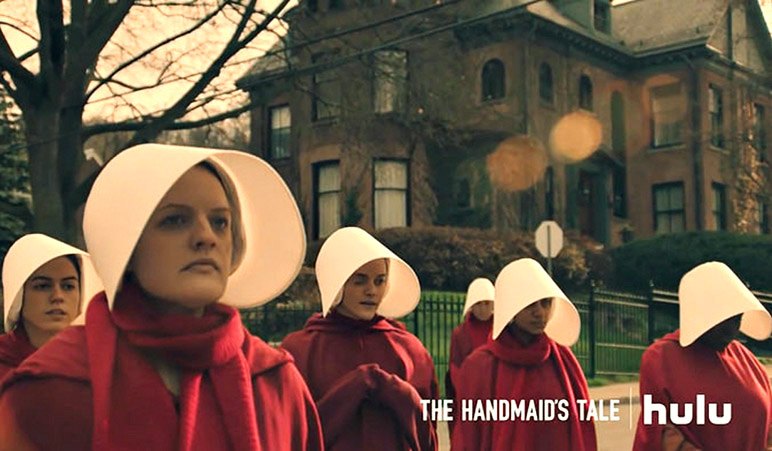“Fans of The Handmaid’s Tale, Hulu’s television adaptation of Margaret Atwood’s 1985 dystopian novel, have taken to donning the red handmaids’ attire to protest current cultural and political threats to reproductive freedom, specifically abortion rights. If those rights go, they surmise, then so will all of the progress feminism has achieved to this point, and America will soon resemble Atwood’s imagined “Gilead,” where women have no rights save for those granted by corrupt men in power. Those claiming that the television adaptation created by Bruce Miller is more documentary than fiction may be closer to the truth than they realize, but the similarities between Gilead and 2017 America do not stem from Christianity. Both worlds teeter on a functional view of human value, a system brought about in today’s world in large part by secular feminism, the availability of abortion on demand, and the idolization of sexual freedom. Instead of Atwood’s provocative prose depicting a caste system distinguished by colored clothing, however, today’s “handmaid’s tale” is told in terms of wealth, performance, and status, as well as in the language of artificial reproductive technologies that cross moral boundaries. As so-called progress continues, children are continually reduced to products — whether disposable or purchasable — and women (as well as men) steadily are being defined out of existence. We’re not hurtling toward a dystopian Gilead; we’re already there. Ultimately, neither story can be told without glimmerings of human dignity, particularly deep longings for identity and justice. True Christianity answers both worlds and tells a far better story.”
This Postmodern Realities episode is a conversation with Journal author Megan Almon about her Volume 41 #1 cover “Seeing Red: The Handmaid’s Tale, Human Dignity, and Hope.”
We’d also like to invite you to subscribe to the Journal. To subscribe to the Journal, please click here.
When you to subscribe to the Journal, you join the team of print subscribers whose paid subscriptions help provide the resources at equip.org that minister to people worldwide. These resources include our free online-exclusive articles, such as this review, as well as our free Postmodern Realities podcast.
Another way you can support keeping our resources free is by leaving us a tip. A tip is just a small amount, like $3 or $5, which is the cost for some of a latte, lunch out, or coffee drink. To leave a tip, click here.
Other articles and Postmodern Realities podcasts related to this podcast:
Does Jesus Condone Self-Mutilation in Matthew 5: 29-30? As featured in The Handmaid’s Tale,
Episode 075: Film Nostalgia & Heaven
Looking for Heaven at the Movies: What our Fondness for Nostalgic Films Says about Us.”
“HBO’s Westworld and the Ethics of Artificial Intelligence.”
Episode 067: Spielberg’s Nostalgia for Reality in Ready Player One
Spielberg’s Nostalgia for Reality in Ready Player One.”
Episode 058: A Movie Review of The Shape of Water
How The Shape of Water’s Fish-Man Symbolizes Christian Grace
Episode 054: The Last Jedi: A Star Wars Movie for the Era of “the Nones”
The Last Jedi: A Star Wars Movie for the Era of “the Nones”
Episode 041: The Gracious Heroism of Wonder Woman
The Gracious Heroism of Wonder Woman
Episode 039: The Gospel According to Marvel
The Gospel According to Marvel
Episode 024: Dr. Strange (film review with spoilers)
Fighting Scientism with the Occult in Doctor Strange
Episode 017: Suicide Squad, Deadpool, and the Rise of the Comic Book Antihero
Suicide Squad, Deadpool, and the Rise of the Comic Book Antihero
Jesus Films: Who Does Hollywood Say That I Am?
Episode 079: Theology of Morgan Freeman
“The Story of Morgan Freeman (Not God).”
The Artistic Pro-Life Theme in Netflix’s I Am Mother
Postmodern Realities Episode 132: The Artistic Pro-Life Theme in Netflix’s I Am Mother
May the Force Bewitch You: Evaluating the Star Wars Worldview
The Matrix: Unloaded Revelations
Breaking Bad’s Addicting Defense of Moral Realism
A Wrinkle in Time: Drawing Apologetic Value from a De-Christianized Film
